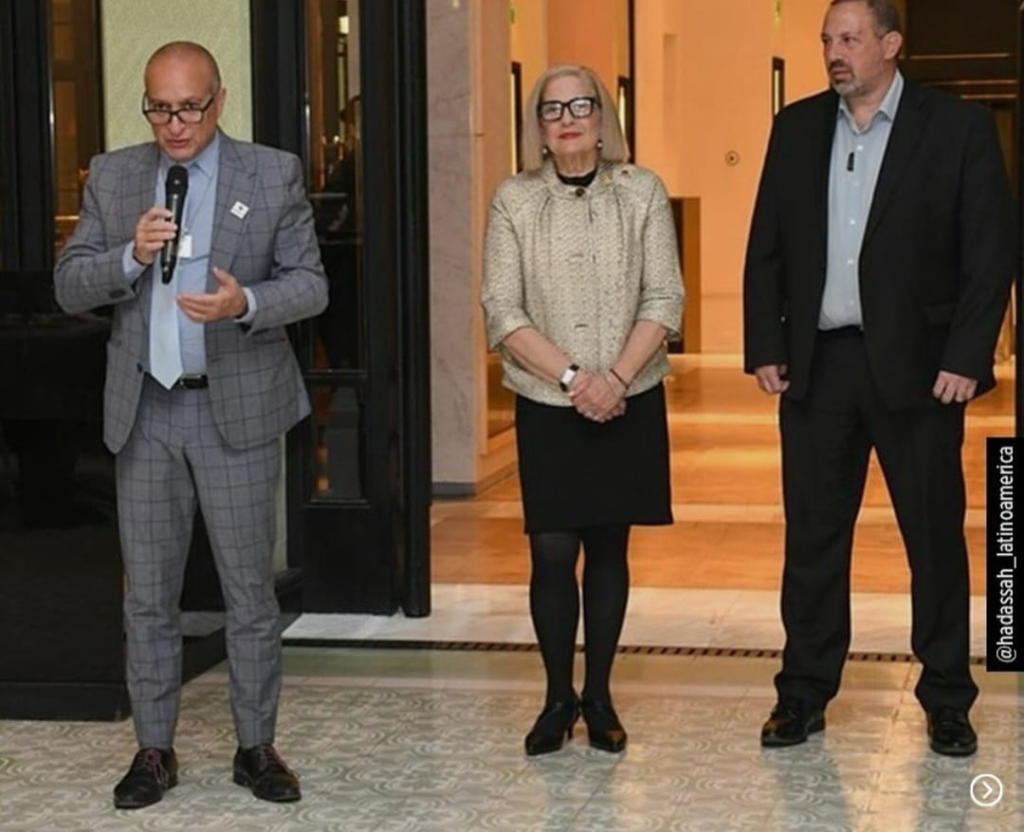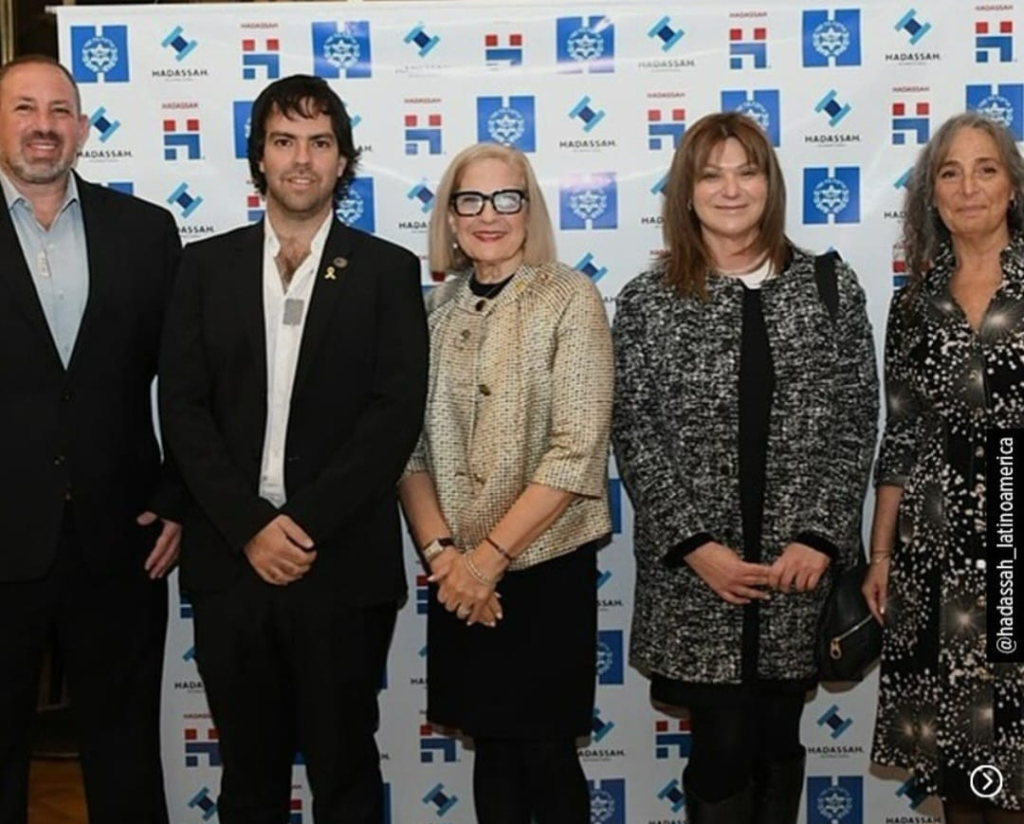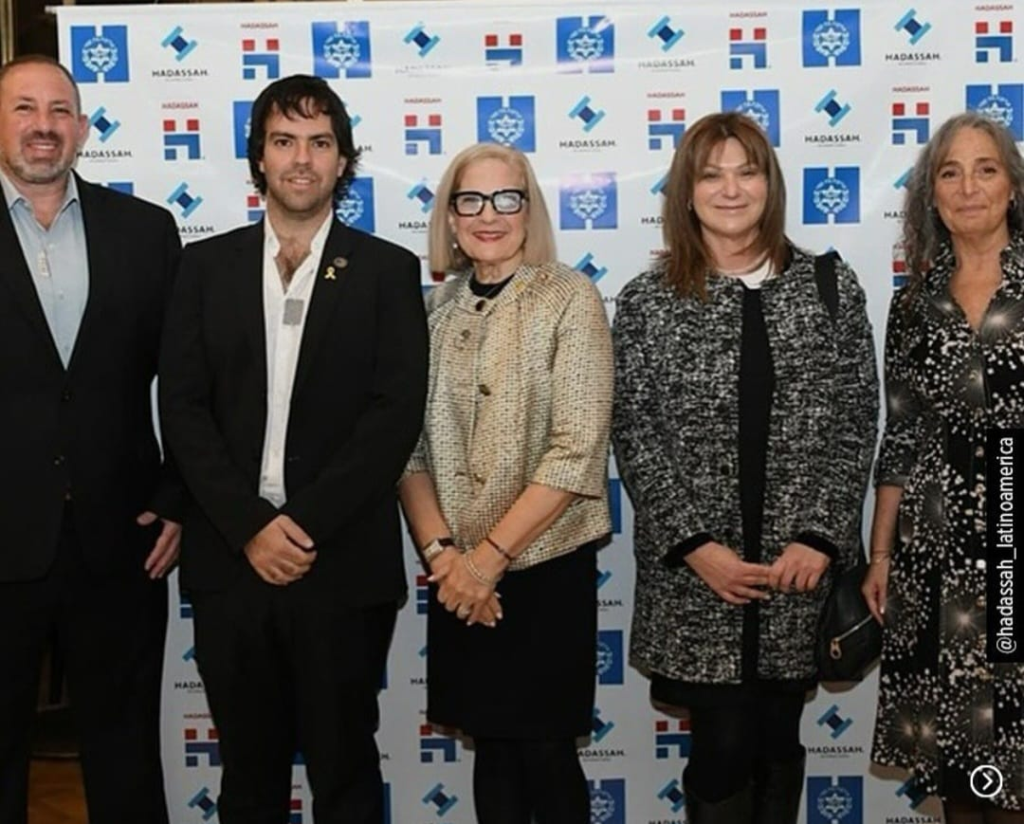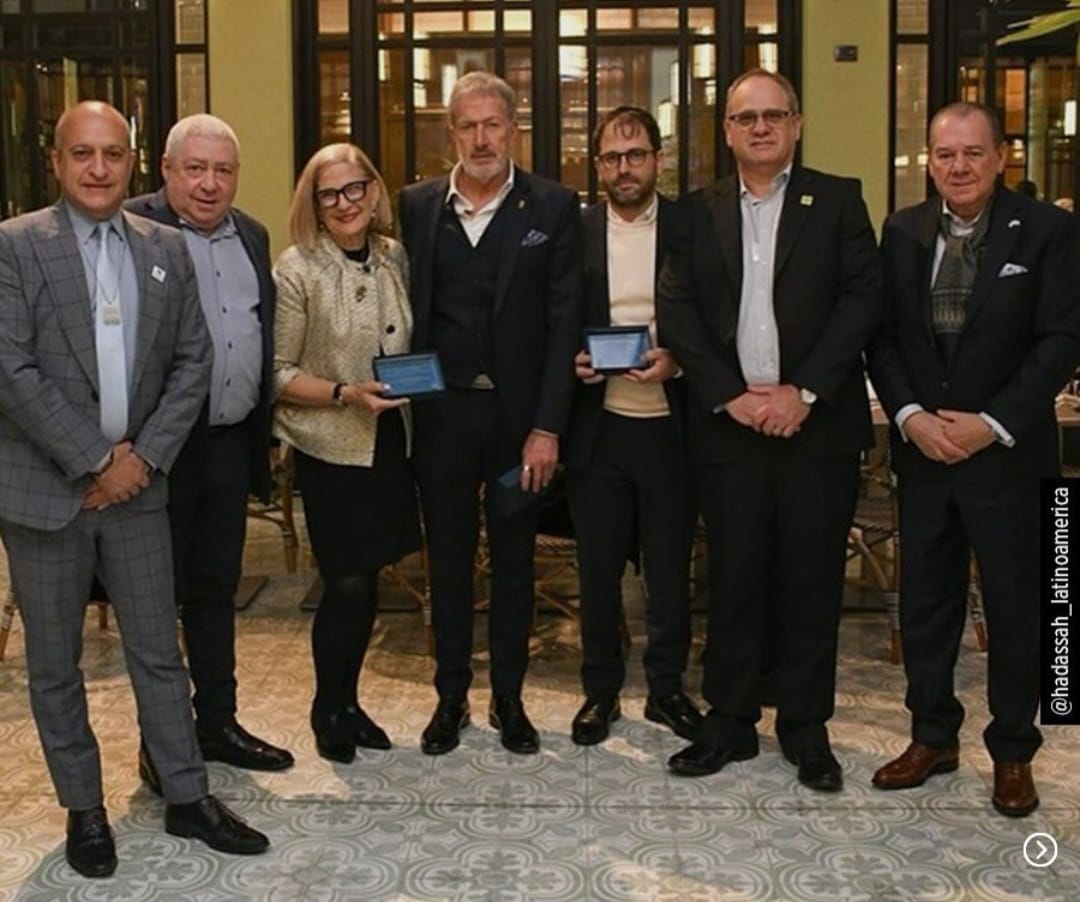Itongadol.- As part of the commemoration of the 30th anniversary of the AMIA bombing, the President of Hadassah | The Women’s Zionist Organization of America, Carol Ann Schwartz, and the Executive Director of Hadassah International, Argentinean-Israeli Jorge Diener, are visiting Argentina, showing their commitment to the fight against terrorism on a global level.
The presence of Schwartz and Diener in the country highlights the relevance of international cooperation at a critical time for Israel in particular and Judaism in the world in general.
Both participated in an event at a renowned hotel in Buenos Aires, which was attended, among others, by the Israeli ambassador to Argentina, Eyal Sela, the president of AMIA, Amos Linetzky, and the president of DAIA, Jorge Knoblovits.
As part of his speech, Schwartz assured that ‘‘it doesn’t matter if we live in Argentina, Israel, France, the United States or Canada, we are all from Hadassah and we have the same concern and care for saving lives of the people of Israel. For making a difference’’.
Emphasising the importance of collaboration, especially in the aftermath of the 7 October massacre, the Hadassah head said: ‘‘I am very happy with the outcome of our international donation campaigns, in which you have participated spectacularly’’.
‘‘Thanks to the contributions of each of you, we were able to deal with the aftermath of the 7 October massacre,’’ Carol Ann added.

On 7 October, some 3,000 Palestinian terrorists stormed into Israel by land, sea and air, killing some 1,200 people and taking 253 hostages, mostly civilians, many of them amid horrific acts of brutality and sexual assault.
‘‘I want to extend a special thank you to all Hadassah supporters around the world, and especially to those who made possible the opening of the new Gandel Rehabilitation Centre at Hadassah Mount Scopus Hospital, which was made possible by large-scale fundraising,’’ he remarked.
The facility ‘‘was intended to be completed in the second half of 2024,’’ Jorge Diener, executive director of Hadassah International, explained after the inauguration to AJN Agency, but after the 7 October attack “it became an emergency and it was decided that by the end of 2023 or early 2024 it had to be open”.
The president concluded that the support they received allowed Hadassah to ‘‘grow and help those wounded by the 7 October massacre, who needed different types of advanced therapies’’.
Diener, for his part, noted that ‘‘maybe some of you understand something I think from what you heard just now from President Schwartz. Maybe some of you don’t understand it and that’s why I’m going to explain it: Hadassah was created more than 110 years ago by the vision of a woman who was the first president of Hadassah, the legendary Henrietta Szold’’.
‘‘There is something that happens in science fiction movies, where no matter who is the last generation, the soul of each person passes from one to the next and a hundred years later it is more or less the same but looks different,’’ he added.

Closing the idea, the executive director of Hadassah International said: ‘‘I want you to understand that that spirit that you just saw in Carol Ann, is the spirit of Henrietta Szold passed on from one generation to the next, the spirit of a woman who in 1912 in a world that was falling apart, that was about to have a First World War, where diseases were killing people, Henrietta Szold went into the desert of what was then Palestine with three nurses and created the seed of what is today the most incredible health infrastructure in the world’’.
‘‘When I see Carol Ann standing here, I am again inspired by the passion and the smile and the vision and the compassion that the women of Hadassah, the leaders of Hadassah, convey,’’ he continued.
Regarding the work of the institution, Diener stressed: ‘‘I think Hadassah is the only hospital in the world that is a mission, that starts not with something medical, but the mission of Hadassah Hospital and Hadassah International is to build bridges for peace through medicine. That sounds very abstract and general and that is exactly what we are talking about now. Hadassah goes where it has to help and where it can help’’.
‘‘Hadassah collaborates with others, as we did with the representatives of CEMIC Hospital, with whom we have been strategic partners for several years and together we participated in the humanitarian mission that Hadassah also did with great pride at the beginning of the war in Ukraine, on the border with Moldova, caring for 40,000 Ukrainian refugees coming out of the exodus, who were there with us,’’ he recalled.
Finally, Diener said that in ‘‘the current war it is necessary to get on the bridge and bring our hands and our help to Israel, this is the moment when the bridge is very important for us to be there. The bridge is to take flight, medicine is only a vehicle, health is what we are looking for. And may that bridge continue to be strengthened because we live in a world where world leaders are focused and concentrated on destruction. And ours is to build, rebuild, rehabilitate and continue to build a better world together’’.
Hadassah’s Director of Development, Fanny Ribak, thanked ‘‘Ambassador Eyal Sela and all those present for joining us’’. She also welcomed Schwartz’s first visit to the country and thanked him for ‘‘your support and commitment’’.

‘‘Carol is a member of a family that has been linked to Hadassah for four generations. She has over 30 years of service to our organisation. In her hometown of Cincinnati, she has taken on leadership roles as a board member of the Jewish Federation of Cincinnati, the Jewish National Fund, Hillel University, among others,’’ Ribak stressed.
The president of Hadassah Argentina, Alejandro Kelman, described the presence of the organisation’s president as ‘’a relevant visit, with only a week to go before the commemoration of the 30th anniversary of the AMIA bombing. Kelman also ‘‘acknowledged all that she has done, is doing and will continue to do’’.
Finally, Marcos Cohen, vice-president of the DAIA, referred to the Hamas massacre: ‘‘A month and days after the fateful 7 October, I had the chance to be in Hadassah and we toured the entire hospital. We understood how the people are treated, the wounded soldiers’’.
‘‘We had the opportunity to talk to many of them, but we also saw the building site that was under construction, the Rehabilitation Centre, and how they transformed what was a car park into an Emergency Care Centre for hundreds more people who needed it, and how all the equipment was ready to be put into use,’’ he added.
‘‘From us, diaspora Jews, thank you. When we were at the Foreign Ministry, I told the authorities ‘the fate of Diaspora Jews is intimately linked to the fate of Israel’. I feel it in my heart,’’ Cohen concluded.


